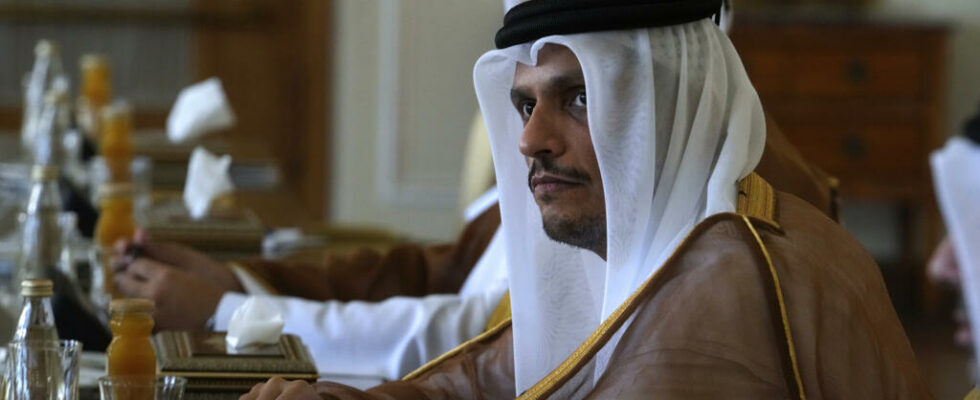Three days after the fall of Bashar al-Assad in Syria, Qatar announced on Wednesday December 11 that it will soon reopen its embassy in Damascus. The emirate severed relations with Syria in 2011 at the start of the civil war. Its UAE and Saudi neighbors have, in recent years, opted for normalization with the Damascus regime. But they too made contact with the new strong men of the country. Regime change is forcing Gulf countries to review their approach to Syria. Interview with Aziz Alghashian, research director at the Observer Research foundation Middle East, a think tank based in Dubai.
5 mins
RFI: Qatar announced on Wednesday December 11 the reopening of its embassy in Damascus, which clearly shows that it wishes to renew dialogue with the new Syrian authorities. What role could it play in Syria?
Aziz Alghashian: In my opinion, I think the Qataris are going to be more proactive and more engaged when it comes to trying to achieve what they wanted to do in 2011: start bringing Syria back into the Arab fold. . But they will also try to influence the situation and assert their interests in Syria.
What could be the next steps in the relationship between Qatar and Syria?
This is where you have to be careful. The next step is for Qatar to begin to engage and contribute, particularly to the reconstruction of Syria. Qatar already has good relations with Turkey. So I think the Qataris will collaborate and coordinate with Turkey, which is the main regional power in Syria. But I think Qatar needs to act very carefully. There is already a lot of pressure on Qatar because it hosts Palestinian Hamas. And faced with the future American administration of Donald Trump, I think they will want to avoid being associated with the current government.
From that perspective, I would say that the UAE and even Saudi Arabia are probably a little better placed to avoid this accusation of working with Islamist groups because they established relations with Damascus before the fall. of Bashar al-Assad. But I think there is a growing international consensus that the void created by the regime change in Damascus must be filled.
Qatar stands out from other Gulf countries, such as the United Arab Emirates and Saudi Arabia, which had normalized relations with Bashar al-Assad. How do Riyadh and Abu Dhabi view the new authorities in Damascus?
No one will miss Bashar al-Assad, but there is a lot of fear, a real worry about dealing with a group like Hayat Tahrir al-Sham (HTS). Even from Qatar. But I think HTS is trying to answer it. They know that their past heritage and associations [le HTS, sous le nom Front Al Nosra, était associé à al-Qaïda jusqu’en 2016, NDLR] are very problematic. This is why they have strived to present themselves as viable partners; they play politics. And I think for Saudi Arabia in particular, even though caution is required – and it is very cautious – it makes the situation more manageable. So I think the Gulf countries see the situation as both cause for concern and opportunity.
Qatar, the United Arab Emirates and Saudi Arabia have all three already started discussions with the HTS. Does this mean that there is no time for them to lose?
Yes, of course, there is no time to waste! The current situation is very fluid. They need to develop relationships very quickly. And personally, I think that one of the reasons why the anti-Assad coalition did not succeed in 2011 was the competition between the Gulf countries on the Syrian issue. You know, Saudi Arabia and Qatar were at odds. They started getting along at one point, then they became antagonistic. The fragmentation of support has therefore contributed to the situation in Syria. And I think that’s a concern today. So there is no time to lose. And I think they realize that it is better that they are united, that they form a bloc of Gulf countries. But they’re going to be very careful about how they’re going to coordinate their efforts.
And what levers do they have to influence the directions of the new Syrian government?
There are obviously two things. First there is money, at a time when the new regime will have to manage the reconstruction of the country. But there is also international legitimacy. And this is where I think the Gulf countries and the Arab states can have an influence. They know that HTS is fiercely anti-Iran: so there is no fear that it will seek support from Iran. But if they don’t intervene at all, they run the risk of pushing him back towards Turkey. So there are levers. And I think they will try to say that not only do they have the financial means that they can provide, but they can also start working quietly to legitimize them within the international community.
Also readSyria: look back at the 24 hours that led to the fall of Bashar al-Assad
